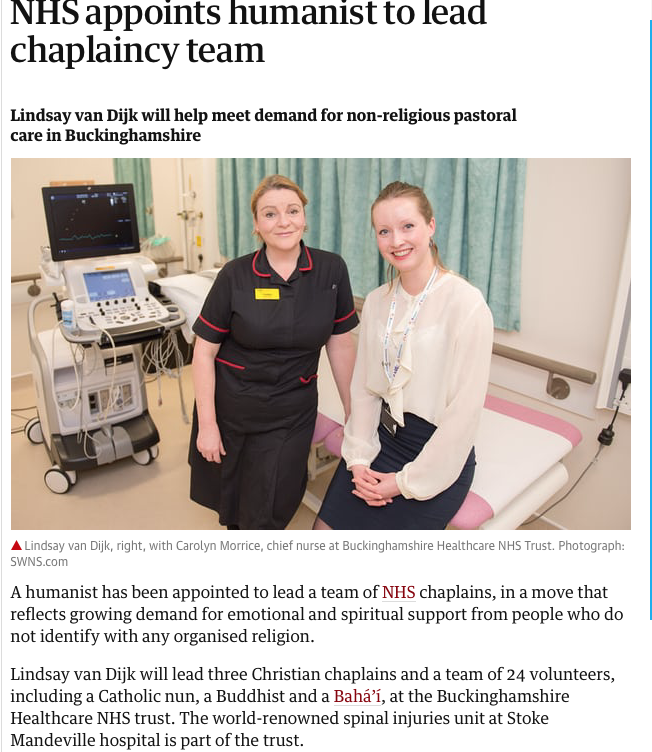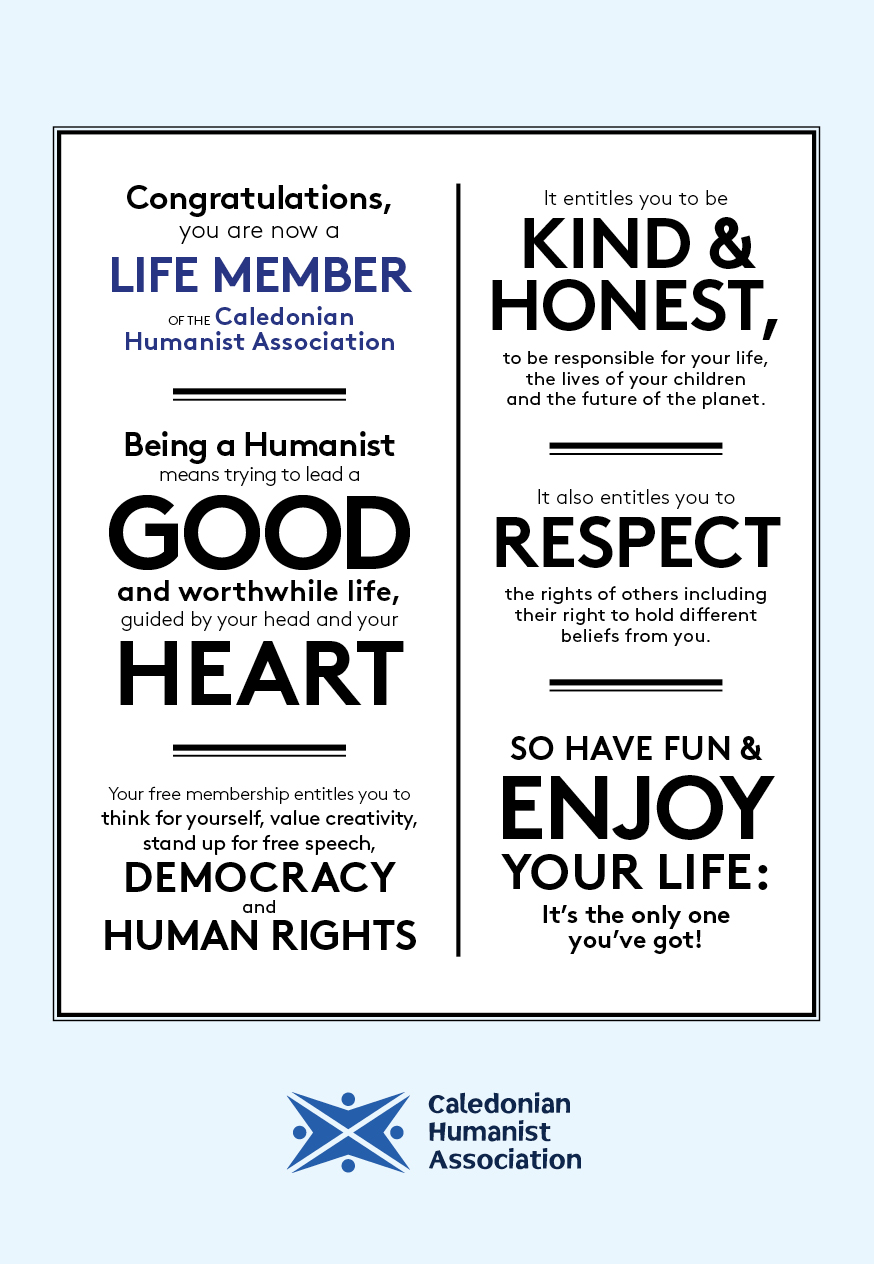I was very pleased to see this story in today’s Guardian. It’s taken a lot of campaigning to allow humanists to be part of chaplaincy teams of any kind, so this is something to celebrate.
I am more than a little confused however, by the related article from Andrew Brown in Comment is Free
Humanism is increasingly the default position in England when people don’t want to think about theology or religious questions. It has replaced “C of E” as the translation of a muffled “don’t know” in questions about religious identity. It’s not the same as atheism, which implies a much sharper-edged conception of identity.
Apart from the careless substitution of ‘Britain’ with ‘England’ – let’s not go there – I think Andrew Brown greatly overestimates public awareness of Humanism.
Humanists UK, formerly the British Humanist Association, claims only 65 thousand members: a drop in the ocean in a country with a population of more than 65 million people.
I wish it were more. As a humanist celebrant I rarely meet anyone who actively identifies as humanist, which is why my reaction on these occasions is one as much of surprise as delight.
I also take issue with Andrew’s notion that Atheism has a ‘sharper-edged conception of identity’. Atheism amounts to no more than a certainty that gods don’t exist.
Secular humanists can be atheist or agnostic, and for most of us, what we believe in is much more important than what we do not.
My lift-pitch version goes like this: Humanists believe that we should behave towards others as we would like them to behave towards us; we believe that we can lead good and worthwhile lives guided by reason and compassion and we believe – as the late Jo Cox MP said in her maiden speech to parliament – that there are more things that unite humanity than divides it.
Here’s another statement of what humanists believe, which I wrote for the Caledonian Humanist Association, (of which I’m no longer a member, but what I said is still true!)
One day, Andrew Brown may well be right, and Humanism will be a ‘default position’, but not because people don’t want to think about religion.
On the contrary, it will be because people have thought about religion, and want to be part of a movement that celebrates the values that unite humanity, rather than divide it.
On the contrary, it will be because people have thought about religion, and want to be part of a movement that celebrates the values that unite humanity, rather than divide it.


[…] all the possibilities that a humanist wedding offers both to acknowledge that and also to show that there are many more things that unite than divide us. I absolutely loved their wedding so I was delighted to get this email that confirmed that they did […]
[…] and humanists share many values with people of faith. We may not believe in a god, or gods, but Humanism is about the things that unite rather than divide us, and because the greatest of those is love, we take it as a compliment when couples choose to marry […]